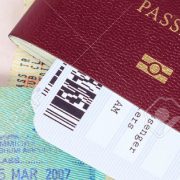NEW PRACTICE DIRECTION FOR ASYLUM AND IMMIGRATION CASES IN THE HIGH COURT
A new practice direction on asylum and immigration cases issued by President of the High Court Mr Justice Peter Kelly on the 17th December 2018 has created significant changes in the Asylum and Immigration court, and imposed significant new obligations on both solicitors and applicants.
Practice Direction 81 came into force on the 1st January 2019 and applies only to cases on the Asylum and Immigration list. The obligations imposed by High Court Practice Direction 81 are significant and wide-ranging.
Following the issuance of this practice direction, there is a requirement on all applicants to disclose a substantial amount of information and documentation to the Court regarding their case, including details of all previous immigration applications made by any applicant or their family member in Ireland or any other country and details of any previous or current civil or criminal proceedings. This is the case even when the applicant’s family members are not involved in the Judicial Review proceedings.
Under the Practice Direction all adult applicants are required to submit a further affidavit providing the information as requested in the Practice Direction. There is also a requirement that the applicant’s solicitor swear an affidavit in relation to the proceedings.
The Practice Direction requires the following to have been completed in respect of every new asylum and immigration case initiated after the 1st January 2019.
- Provide the Court with all relevant material facts by way of a sworn affidavit
- Provide a full account of the applicant and relevant family member’s immigration history, to include an account of any applications made to the Department of Justice or any other immigration or protection authority both in Ireland or in any other country – this would include previous visa or immigration applications to any State.
- Exhibit the full immigration file for all immigration/protection applications of every applicant made both in Ireland and other countries. If such documents are not exhibited, a full explanation as to why they have not been exhibited and provide an outline of what attempts have been made to acquire the documents
- Draw the Court’s attention to any “significant matter of fact adverse to the applicant’s case”
- Swear that all previous representations made to the Department of Justice or any other immigration authority have been disclosed, or if not, to explain why not
- Swear that all previous statements or representations made to the Department of Justice or any other immigration authority for the applicant and family members is the truth in every respect, or if not, particularising the extent to which any such statements or representations are untrue;
- Swear that all statements in the Statement of Grounds are true in every respect, or if not, particularising the extent to which they are not true;
- Swear that the applicant is aware that it is an offence of perjury to make a statement in any affidavit that is false or misleading in any material respect and that he or she knows to be false or misleading.
- Identify the applicant’s religion and confirming that the grounding affidavit has been sworn in a specified manner recognised by that religion
- Swear that the contents and implications of the averments of verification, all statements in the statement of grounds and the details of all previous claims and representations made by or on behalf of the applicant or any member of his or her family, or any solicitor on behalf of any of them, have been fully explained to the applicant by his or her solicitor, and that the applicant fully understands same
- Specify the language that the applicant understands and confirming that the applicant fully understands the affidavit and its exhibits in the language in which it is sworn.
- Exhibit any document in a language other than English with a translated document by official translation company
- Disclose any criminal offences/convictions/proceedings in Ireland or any other country
- Disclose if the applicant has issued any legal proceedings in any immigration/criminal/civil matter in Ireland or any other country
- Swear and file a further affidavit in respect of any new material relevant to the court subsequent to the grounding affidavit
- Attend the substantive hearing of the case in person if ordinarily resident in the State, and if required to orally confirm the averments of verification set out in the affidavits.
- Applicants may be required to complete and submit to the court checklists of the requirements in the Practice Direction as may be required by the Judge from time to time
Berkeley Solicitors has recently contacted all clients who have current Judicial Review cases active in our office to explain the new requirements imposed by the practice direction. If there are any further developments on the new Practice Direction there will be a further update on the Immigration Blog and clients will be contacted.



